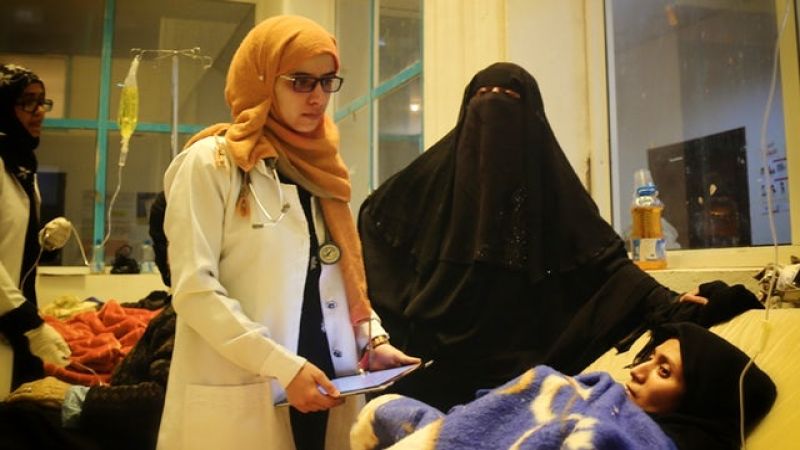
By Natalia Kanem
In Yemen, just getting a check-up or reaching a functioning maternity hospital has been a struggle for pregnant women since conflict broke out in 2014. Now, the mass outbreak of cholera has seen the situation go from bad to worse. More than 400,000 people have been infected, and a further 1,800 killed so far.
Failure to respond to the crisis means that an estimated 1,000 Yemeni women and girls may die from complications of pregnancy or childbirth this year. Nearly two in five maternal and reproductive health facilities have closed since the conflict began, and critical maternal health medicines have been in short supply.
Women and girls are uniquely vulnerable to the cholera outbreak. Because of entrenched gender norms and roles, they bear most household responsibilities, such as fetching water and cleaning latrines, and are therefore more exposed to the bacteria that cause the disease.
And if a woman, pregnant or not, falls ill, her lack of control over household resources means she may not be able to get the medical care she needs.
Without prenatal care and delivery services, women are vulnerable to infection, miscarriage, premature delivery, stillbirths, severe long-term illness and disability, including fistula, and even death.
The conflict has also resulted in food insecurity, with an estimated 1.1million pregnant women suffering from acute malnutrition. Hunger and malnutrition can heighten a woman’s risk of not only complications in pregnancy or childbirth, but also death from diseases such as cholera. Malnutrition or undernourishment can also lead to problems with breastfeeding, which can present health risks to newborns, too.
The situation in Yemen is just another example of how pregnant women are disproportionately more vulnerable than men in crises. Whether a woman lives or dies often depends on whether she can access basic reproductive and maternal health services, which too often take a backseat to other urgent needs, like food and shelter.
The humanitarian response in Yemen – and wherever else crisis strikes around the world – must go far beyond the provision of food and shelter, as essential as they are, and include health services that save women’s lives. Governments and assistance groups everywhere need to move women’s health, including their sexual and reproductive health, from the backseat to the front seat of the world’s humanitarian agenda.
A gender-sensitive humanitarian response that takes women’s reproductive health concerns into account may also contribute to recovery, once the fighting has ended.
Women can play a central role in crisis recovery and rehabilitation, but their participation depends in part on whether they are in good health, or whether they are incapacitated from complications of pregnancy or childbirth, weakened by chronic malnutrition or vulnerable to disease.
A gender-sensitive humanitarian response recognizes that the needs and vulnerabilities of women, men, girls and boys in a crisis-affected population will be different. There are 141.1 million people who need humanitarian assistance around the world; one-quarter of them are women and girls of reproductive age. Help that fails to meet all of their needs, including those specific to gender and sexual and reproductive health, can hardly be considered effective.
Meeting the acute needs of Yemen’s women and girls is a moral imperative, and the entire international community has a role to play in saving lives.
Our response, if it is done in a way that promotes gender equality and meets everyone’s needs, including the sexual and reproductive health needs of women and adolescent girls, could not only mitigate the harm, but may also lay the foundation for rapid recovery and post-conflict development.
An investment in women’s health in Yemen today has the potential to yield returns in the form of peace and stability tomorrow.
Source: News Deeply, Edited by Website Team